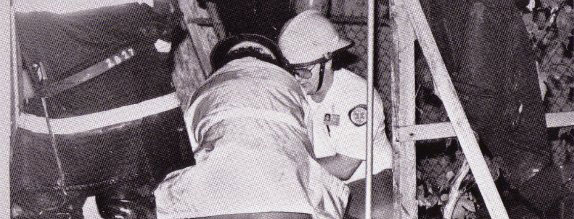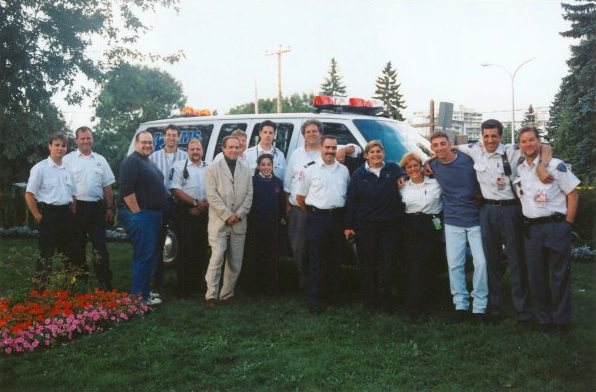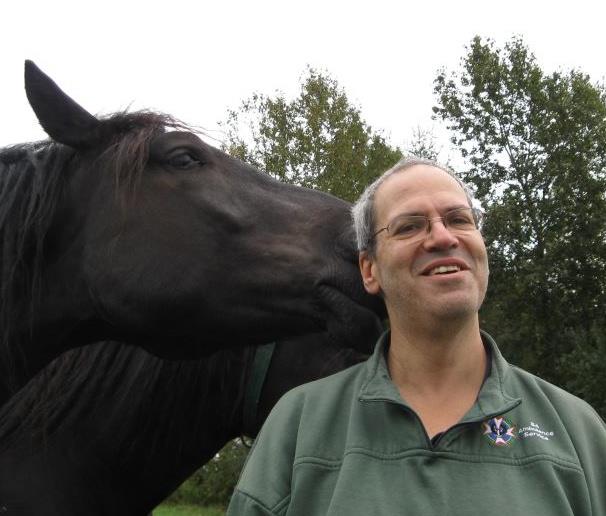
A nugget of EMS organizational wisdom every day. #40 Remember your roots
I rolled on my first working fire during the winter of 1978.
I remember it was a very cold morning. I don’t recall how I got to the scene in Ville St-Pierre. I remember standing on an interior third-floor stair landing and being able to see the clear blue sky because the roof of the building was gone. The air was filled with an icy mix of steam and mist rising from the wreckage. The moisture instantly adhered to everything it touched especially the metal fastening clips on the front of my turnout coat. I remember pulling a partially burned dresser out of the way and the horror of coming face-to-face with a very dead resident of the building.
I wasn’t quite eighteen-years-old, was on my first working fire, and was learning how to deal with the facts of life and death in the fire service.
My eighteenth birthday came in March. I celebrated by joining the paramedic program at Dawson College/ Royal Victoria Hospital. While completing my EMT course, I became a dispatcher at Resuscicar – the paramedic service that ran out of the Royal Vic’s ER.
My first shift as a solo dispatcher was in the summer. It was hot and humid. The Resuscicar office/crew quarters were in a space that had once housed a horse-drawn ambulance complete with a pit in the floor where the manure was once shoveled. It was a tiny dank space surrounded by stone and concrete. There were a couple of windows in the front but the space had much more in common with a cave than an office.
The job of a dispatcher was to answer the calls that came in via either the public phone number or the direct line from the ER and then send a crew to respond. This was a long time before 911 and an organized EMS system. There were about 25 different private ambulance firms operating in the Montreal area. The level of care ranged from sticky-side-down bandaid placement to full ALS care.
The ambo crews had the good sense to stay out on the road as long as possible on those hot summer nights. Dispatchers worked alone.
I wandered up to the door. There was no one there. Apparently, the person I was replacing had already left the building – perhaps with Elvis, to catch a show. No, really. There was no one there. It seems impossible by today’s standards. Back then, we were only a few steps removed from the world of Mother, Jugs and Speed.
I gathered up the stale remains of an all-dressed pizza ordered in from Alfa and cleared a little space for myself at the desk. I wiped the greasy fingerprints off the phone, settled in with a book and made myself – nervously – at home in this strange space. The first phone call was also my first emergency call followed by my first radio call. A bunch of firsts.
It had gotten dark outside. There was minimal lighting in front of the office. During the daytime, this was a busy loading/unloading zone for the hospital’s laundry service. During the night, it was quiet save for the occasional arrival and departure of an ambulance or morgue wagon.
I saw someone walking up the alley toward the office. He was an odd bearded character with pants too short and very shiny military style boots. He was carrying a long thin bag over one shoulder. He wasn’t wearing any kind of a uniform. He kept walking up the alley toward the office. I sat inside quietly watching.
When he was just outside the door he pulled the long bag down and unzipped it on the ground. He pulled out a rifle. He reached for the door to the office.
I dove under one of the crew bunks in the back of the office and watched in complete terror as the man came slowly into the office, looked around, and then sat down in my chair. He didn’t say a thing. He began working on the gun with a cloth that smelled vaguely oily. He stayed for about twenty minutes although it seemed like hours to me in my hiding place under the bed.
I crawled out and watched as the man left as he had come, quietly walking back down the hill with the bag over his shoulder until he disappeared.
The emergency phone rang again. My second emergency call. And then the emergency phone rang again with my third emergency call. And somehow I forgot about the man with the rifle until much later in the evening when one of the ambulance crews returned to the office.
“Oh, that’s just Marc-Audet. Didn’t anyone tell you about him? He’s a great medic. Just wired a bit differently.”
I still smile at those memories all these years later. I have never forgotten my humble roots in the emergency services. They help keep me anchored when the wind gets to blowing hard and the times are filled with turbulence. And they allow me to relate to the latest generation of EMS providers who are encountering their own series of firsts in a world quite a bit different than the one they had envisioned during training.
Be well. Practice big medicine.
Hal



